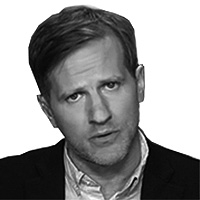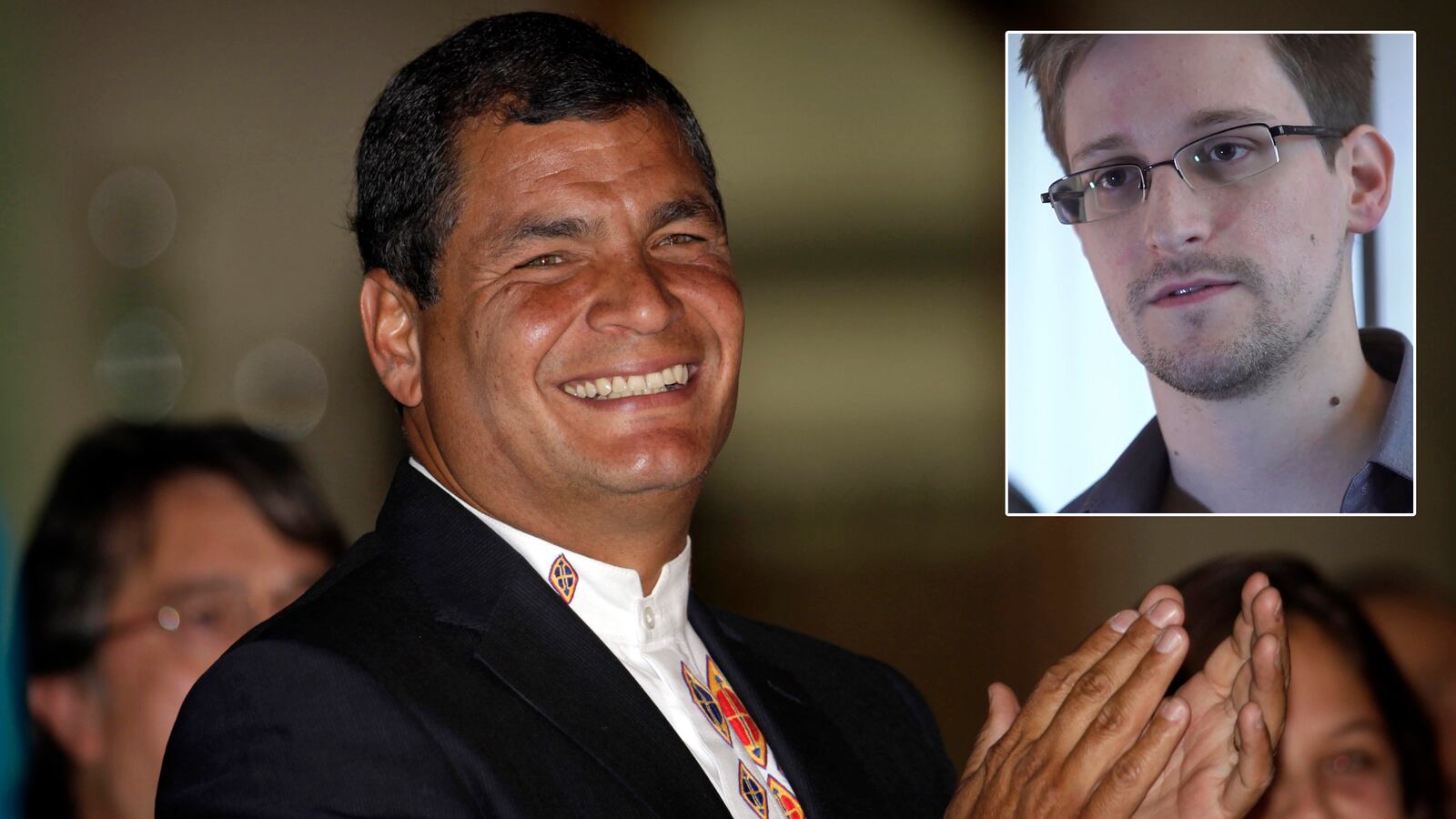As NSA leaker Edward Snowden hopped from authoritarian China to authoritarian Russia, to catch a connecting flight to dictatorial Cuba with a final stop in either Ecuador or Venezuela (two countries with dubious commitments to democratic norms), those of us left scratching our heads—and wondering if Daniel Ellsberg had transformed into Philip Agee—were offered a piece of advice: we needn’t talk about Edward.
BuzzFeed’s Ben Smith isn’t a member of Snowden’s amen chorus, but he echoed a common sentiment among journalists, arguing that the transient leaker is “what used to be known as a source. And reporters don’t, and shouldn’t, spend too much time thinking about the moral status of their sources.” When I discussed the Snowden case on NPR last week with Jesselyn Radack, the national-security and human-rights director at the Government Accountability Project, she too stressed that the troubling NSA surveillance program—not Snowden—should be the media’s focus.
These are echoes of Snowden’s own complaint that the “mainstream media now seems far more interested in what I said when I was 17 or what my girlfriend looks like rather than, say, the largest program of suspicionless surveillance in human history.”
It’s a reasonable objection. But it’s only half right.
How much Snowden earned as an NSA contractor and the details of his girlfriend’s career as Hawaii’s sexiest acrobat are, for the most part, of only prurient interest. But contra Snowden, there has been vigorous debate on NSA surveillance, despite the availability of only broad details—some of which have changed since publication—about the program’s capabilities. Indeed, Snowden himself has made rather extraordinary claims that have been furiously denied by the Obama administration (obviously) and questioned by skeptical technology experts.
Glenn Greenwald, the Guardian writer who first published the NSA leaks, told The New York Times that Snowden was in possession of “thousands” of documents, of which he deemed only “dozens” newsworthy. So what of this other material? To remove focus from Snowden is to believe, for no better reason than we want to believe, that this classified information—whatever it is—won’t be delivered to or demanded by security services in Cuba, Venezuela, or China, all of whom have very bad track records on the privacy and snooping issues about which Snowden professes to care deeply.
These are not irrational concerns. But ours is a binary debate that demands, like Florence Reece, to know “which side are you on?” To paraphrase the blogger Allahpundit, one can think the initial leaks of NSA spying capabilities were absolutely necessary and that many of his actions since have been less so. Is it “whistleblowing” to reveal how the United States and Britain spy on diplomats at the G20? Or to expose the targets of NSA hacking into Chinese targets? “One human-rights activist sympathetic to Snowden recently told me that the G20 spying revelations and the discussion of IP data with the South China Morning Post “concerned” her organization.” But as The Nation’s Rick Perlstein recently discovered, there is a certain all-or-nothingness that guides Snowden’s most diehard supporters (and a confused law-and-order patriotism from his detractors, many of whom distrust the government with everything but the possession of our most intimate data).
Likewise, Snowden has said that he’s concerned with the privacy rights of non-Americans, and urged a “return to sanity, constitutional policy, and the rule of law rather than men” in the United States. Both admirable positions, for sure. But how can one not, then, point out Snowden’s decision to utilize countries contemptuous of democracy—and ruled by men, not laws—in order to expose a lack of democracy?
So yes, it is necessary to point out that, from Moscow, Snowden looks to be relocating, after a possible stop in Havana, to Ecuador, a country classified by Freedom House as “partially free,” with an “unfree” press. As we debate protecting journalists like Glenn Greenwald from the scurrilous attacks of both his fellow journalists, and politicians, it’s also worth noting that the Committee to Protect Journalists has expressed its “dismay” over a repressive new media law, inspired by Ecuadorian President Rafael Correa’s late mentor Hugo Chávez, that allows the government to “impose arbitrary sanctions and censor the press.”
As we bang on about the importance of transparency, we should remember that the Ecuadorian National Assembly, in which 100 of 137 seats are held by Correa’s ruling party, approved the controversial measure, according to the Knight Center for Journalism in the Americas, “without debating any of its provisions—not even the ones that were added in the last moment.” Or maybe revisit Amnesty’s 2012 complaint that Correa was overseeing a “pattern of criminalization of community leaders who have participated in peaceful protests and then face unfounded charges, arbitrary arrests, and strict bail conditions simply for campaigning against laws and policies on the use of natural resources.”
Perhaps granting Snowden asylum is Correa’s payback for the United States granting asylum to Ecuadorian newspaper columnist Emilio Palacio, who was sentenced to three years in jail and a staggering $42 million fine for “libeling” the government. And this is a government, according to a WikiLeaks cable that Julian Assange apparently hasn’t yet read, whose head of state has “declared himself an unconditional ally of Cuba … commended the Cuban revolution’s achievements, [and claimed] it had succeeded in ensuring human rights for all Cubans.”
So yes, let’s apply pressure the Obama administration, demanding more transparency and details into what—and how much—data the NSA is gathering on innocent Americans. But let this not preclude us from talking about Edward.






